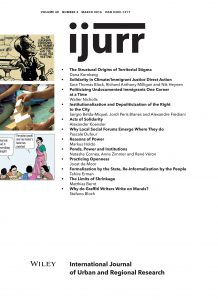Colonizing the New Frontier: Bloggers Beware
 by ishein1
by ishein1
Newly elected president, Barack Obama, held his first official press conference on Monday evening. This historically rich press conference on the surface was isomorphous with press conferences of the past. This fact was accentuated by the presence of Helen Thomas, currently a columnist for Hearst Newspapers. As she has done for the past four decades, and despite attempts by President Obama to lighten the moment, Thomas asked her usual critical and pertinent questions. Obama responded as most past presidents have by not making any “obvious news”. What happened next, however, demonstrated that the press conference was not as anachronistic as it would seem. President Obama fielded a question from Sam Stein, the White House correspondent for Huffington Post. This marked the first time a blogger’s question was voiced at a presidential press conference. Neither the particular question from Mr. Stein nor the answer given by Obama caused any ruckus. What did induce a palpable excitement, however, was the fact that this question was solicited. Furthermore, it is telling that the White House, who decided in advance which reporters would be given an opportunity to ask their questions, gave this honor to the Huffington Post and not the Wall Street Journal, The Chicago Tribune, or Newsweek, among other more conventional news outlets. It is clear that the political landscape is in a liminal period. Civil society theorists can help elucidate whose journalistic narratives are being legitimized. The Huffington Post gained popularity as an alternative public sphere. This space of subaltern news provides a potential opportunity for regular citizens to enact a comparative analysis between it and its mainstream counterpart. It is true, as Jeffrey Alexander, civil society theorist, proffers, that the values of democracy, represented as a semiotic binary (e.g. openness vs. secrecy) are ubiquitous within an ecumenical civil society and they structure most, if not all, political events and discussions. Smaller public spheres however, provide spaces for alternative narratives and a check on the ecumenical civil sphere. As a result, Huffington Post and other blog sites as they become more influential and visible must remain wary of becoming subjugated by the mainstream news’ narrative and potentially losing the spirit of genuine deliberation.



1756-2589/asset/NCFR_RGB_small_file.jpg?v=1&s=0570a4c814cd63cfaec3c1e57a93f3eed5886c15)
1540-6237/asset/SSSA_Logo-RGB.jpg?v=1&s=c337bd297fd542da89c4e342754f2e91c5d6302e)
While Huffington Post and other blogs are gaining legitimacy, other online news sources remain outside of the mainstream. It seems that identifying mainstream and subaltern media may become more complex. A spectrum of legitimacy seems to be emerging, and as user generated content is broadcast on television the same spectrum might apply to other forms of media.
Theorists of democracy and civil society must be very busy these days!
Keri